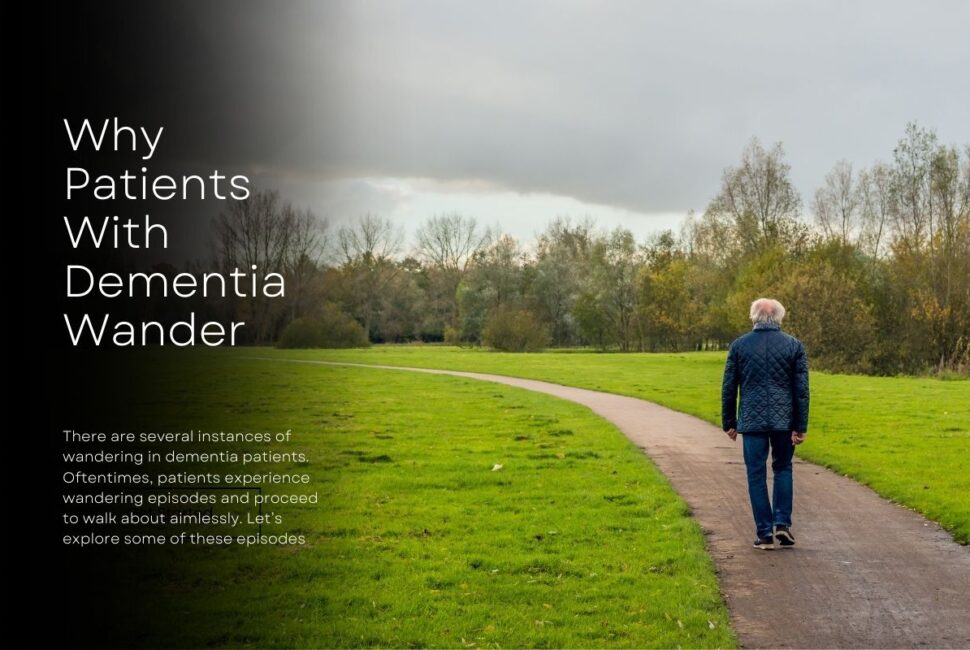Why Los Angeles Hospice Care Patients with Dementia Wander

Do you have a loved one with dementia in Los Angeles hospice care? If you do, you may already be familiar with the issue of dementia wandering. Patients with dementia often have a need to get up and walk. The problem is that they leave their home and struggle to remember how to go back. Currently, there are ongoing studies on the causes of and treatment for dementia wandering.
Dementia is a general term for a patient’s inability to properly remember, think, or make decisions that severely impact their everyday life.
Here are some signs that suggest a person has developed dementia:
- Gets lost in a familiar neighborhood
- Forgets the name of a close family member or best friend
- Forgets the name of familiar objects
- Forgets cherished memories
- Unable to complete tasks on their own
If your loved one is showing signs of dementia, you may want to consider the benefits of hospice in Los Angeles.
There are several instances of wandering in dementia patients. Oftentimes, patients experience wandering episodes and proceed to walk about aimlessly. Let’s explore some of these episodes:
- Even if a patient is already at home, they express the desire to “go home.”
- A patient struggles to remember how to travel to familiar locations, such as the bathroom or their own bedroom.
- A patient may allude to carrying out duties that they once served. They may say that they are reporting to a job when in fact, they retired several years prior.
- A patient is determined to find out where their former acquaintances or deceased family members live.
- A patient feels anxious in a crowded area, such as a marketplace or dining establishment.
Ways to Reduce Dementia Wandering in Los Angeles Hospice Care
While you cannot guarantee a patient will not wander, there are ways to reduce the risk of wandering. If you are a caregiver, you know how important it is to watch your patient closely.
Here are some ways that you can reduce the risk of wandering in a dementia patient:
- Give your patient several opportunities to participate in well-structured, fulfilling activities during the day.
- Figure out the time that your patient typically wanders. For example, some dementia patients experience “sundowning”, which means that their need to wander tends to occur in the early evening.
- Plan out activities to keep your patient engaged and help reduce tension, anxiety, and restlessness. Aerobic exercises can help or if not, have them use the sauna to replenish their workout routine.
- Make sure your patient’s basic needs, such as food, water, and toiletry access, are met.
- Reduce your patient’s liquid intake about two hours before bedtime. Drinking water or any kind of liquid, close to bedtime can cause your patient to wake up in the middle of the night to use the bathroom. A dementia patient may struggle to find their way to the bathroom, so you should limit how much liquid they drink.
- Involve your patient in everyday tasks such as dinner preparation and laundry folding.
- Comfort your patient and reassure them of their safety if they feel bewildered, abandoned, or lost.
- Remove any kind of access to car keys if the patient can no longer operate a vehicle.
- Avoid bringing your patient to a crowded location that may cause them to feel confused or overwhelmed.
- Check how your patient reacts to an unfamiliar setting. Do not leave the patient alone if an unfamiliar setting causes them to feel confused, disoriented, or frustrated.
Are you wondering what the best hospice in Los Angeles is? You have options. If you are looking to introduce a loved one to Los Angeles hospice care, know that the staff at Faith and Hope Hospice cares for all their patients and understands the obstacles that dementia patients face. You can feel more at ease knowing that Faith and Hope have highly trained professionals on call to keep your loved one safe.

